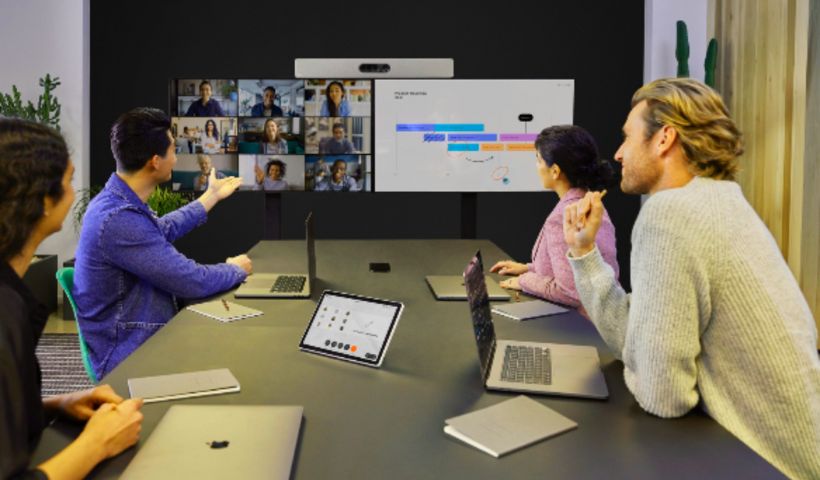Collaboration Technology : Effective collaboration in the hybrid workspace requires all employees to be connected, engaged, and able to participate on equal terms. The latest tools and practices that are emerging can help.
Although many organizations were already planning or implementing digital transformation strategies when the COVID-19 pandemic struck, this situation caused these companies to accelerate their efforts. As working from home became the norm, not the exception, companies scrambled to deploy collaboration tools so employees could work together and stay productive from different locations.
Companies need to make sure that no matter where employees are or what devices they use, they have access to the right information at the right time , says Kumar. And collaboration tool vendors are trying to extend and improve the capabilities of their products to meet the needs of these organizations. These vendors have to ensure that their clients’ employees can have the same experiences using their collaboration tools on any device.
Hybrid Work + Collaboration = Tension
There’s a tension around collaboration when it comes to hybrid working, says Adam, analyst vice president of employee experience technologies. What organizations have learned is that the technology that works when people are fully remote needs to be modified or changed when some workers are in the office and others are working away from it.
Hybrid Meetings Are A Great Example
Video conferencing platforms like Zoom, WebEx, and Microsoft Teams work well if everyone is remote and everyone appears in the same size rectangle on one screen, putting everyone on a level playing field. Companies have developed best practices and etiquette to ensure that everyone can participate, such as encouraging people to insert new ideas through the chat feature, according to Preset.
But once that remote meeting turns into a hybrid meeting, organizations revert to pre-pandemic dynamics, except now only a few workers are in the meeting room, while many more are working remotely. The host of a meeting in the office must also be able to see the content and people participating, hear everyone and see the other digital signals that remote people transmit.
New features in video meeting software can help make the meeting experience more equal for everyone . Zoom’s Smart Gallery, for example, uses artificial intelligence to create an individual feed for each attendee in the meeting room, so remote participants can see their movements and facial expressions more clearly.
New Tools
Organizations also need to implement technology that enables collaboration with “deskless” or “frontline” workers , such as field technicians, truck drivers, warehouse workers, store clerks, and medical personnel, to make them feel connected , a human resources consulting firm .
Deskless workers are often cut off from the company intranet, as well as the conference calls and training sessions that help team members stay connected. These workers may not have time to attend a meeting or they may not be able to interrupt their work to find desktop computers with the latest collaboration software. Instead, they often use their own mobile devices and applications, which are not very secure, to stay connected .
Other tools emerging to boost community among workers in different locations include virtual water cooling applications, online learning platforms, and asynchronous video messaging tools. And several of the major technology providers, such as Cisco, Meta, and Microsoft, are exploring the use of virtual environments for meetings and other events .




